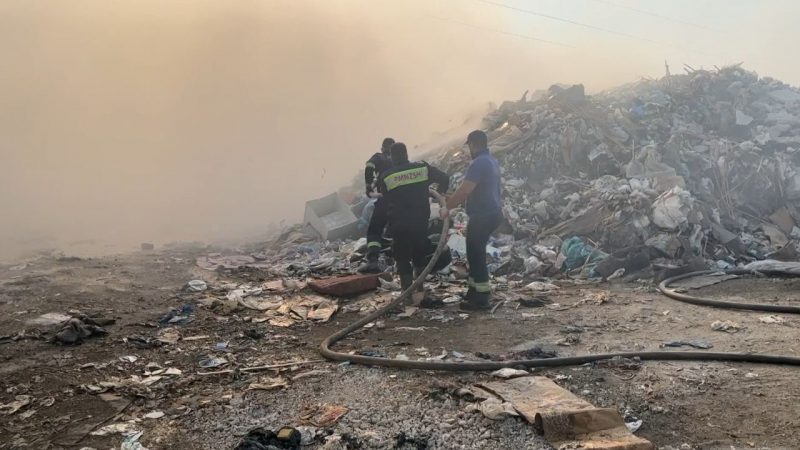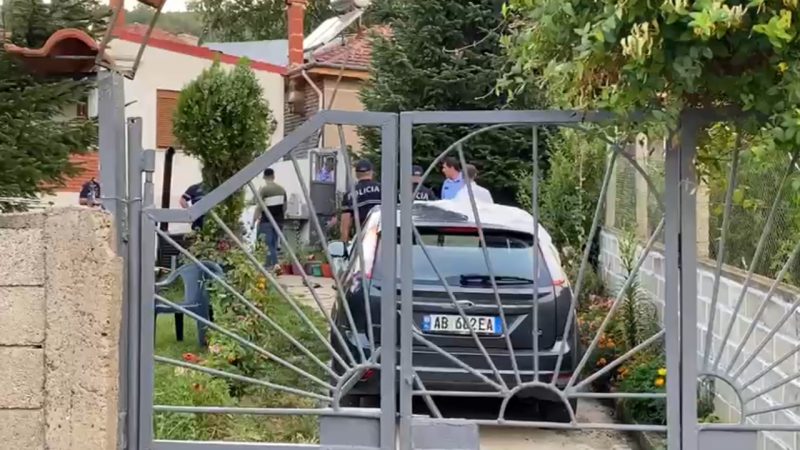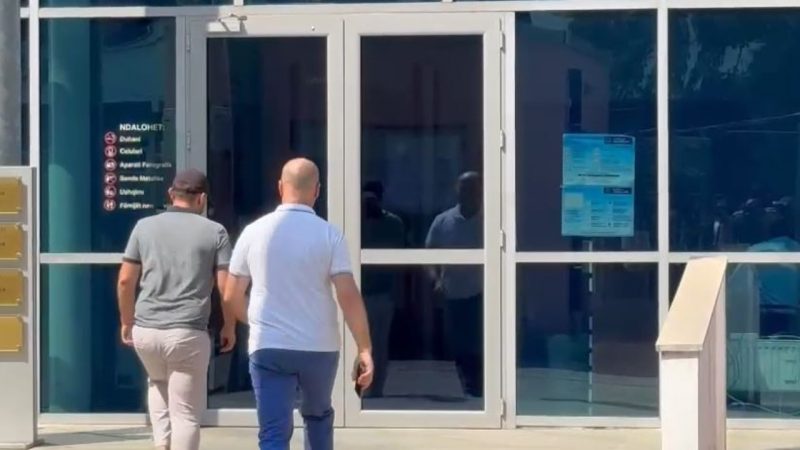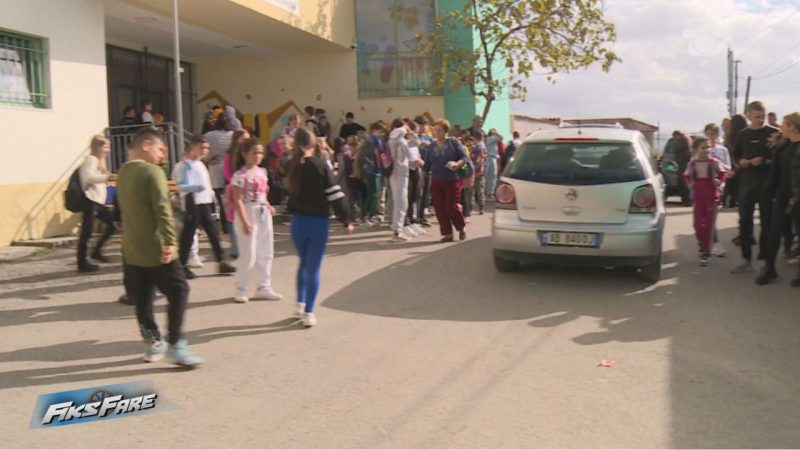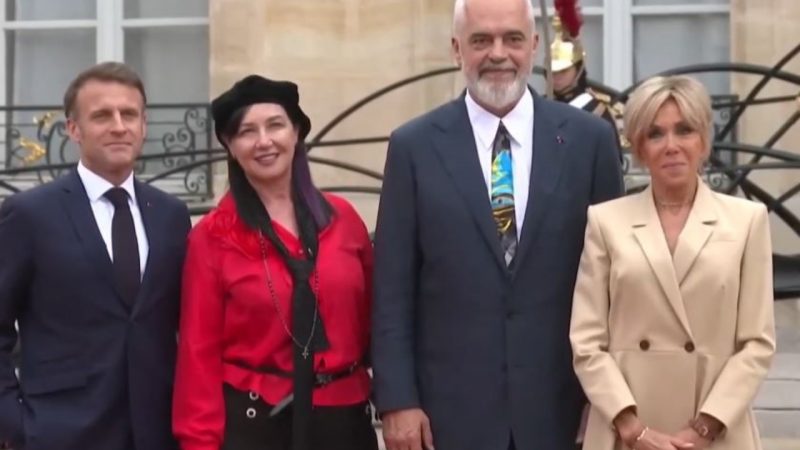 PM Rama is welcomed in Paris by president Macron for the opening ceremony of the Olympic Games
PM Rama is welcomed in Paris by president Macron for the opening ceremony of the Olympic Games The Director for Wester Balkan at the European Commission, and also Chairwoman of the European Commission and Chair of the International Monitoring Operation, Genoveva Ruiz Cavalera, responded to the declarations of the Albanian President, who criticized the judiciary reform.
This is her full declaration posted on the EU website, Europa.eu.
The EU and the US are fully committed to continue supporting the reform of the judiciary in Albania, to guarantee the right of the citizens to a democratic society where nobody is above the law. The vetting of the judiciary is an essential step in this direction.
A little over one year has passed since the Independent Qualification Commission held the first hearing in the framework of the vetting process. Since then, the first instance vetting institution has adopted more than 140decisions. These were followed by around 20 final decisions at the Appeal Chamber level.
The very tangible results achieved to date have allowed us to take stock of this first year of intense work and to address the challenges that lie ahead, considering that vetting is going to continue for some years to complete the evaluation of over 800 judges and prosecutors.
First, the people of Albania deserve special praise. It is thanks to their strong determination that the judiciary across the country is being cleared of corruption, for once and for all. Their desire for a truly impartial and professional judiciary meant that the reforms could be started. Citizens must be praised as well for their continuous interest, throughout the process. Since the vetting institutions started to deliver the first results, the public has closely watched every single step, outcome, and decision. This public interest has also generated a large number of denunciations of corruption and mismanagement of justice from citizens directly to the observers deployed at the International Monitoring Operation (IMO). In the past six months, the IMO received close to 250 denunciations from individual citizens, private enterprises, NGOs and public institutions. This readiness to contribute demonstrates that citizens trust that vetting is going in the right direction to respond to the legitimate public aspirations.
Second, the newly created structures of the judiciary deserve special encouragement. We should not forget that the justice reform involved a root and branch overhaul of the whole governance of the judiciary. It focused on creating an independent and self-governed system that ensures integrity and sustainable accountability, as well as independence from political influence. The EU fully supports the new separate judicial and prosecutorial councils that have been established, as well as the new Justice Appointment Council, while acknowledging that it takes time to build a solid new system.
Third, now that a year has passed, it is possible to make a first analysis of the vetting cases and results. The vetting is a complex process and every single dossier, comprising thousands of pages, is different from the other. There are nuances and aspects across the three pillars of the assessment that might lead to different conclusions on grounds that appear to be similar. The IMO International Observers have monitored the decisions of the vetting institutions at all levels, as well as followed closely the outcome of investigations conducted by auxiliary bodies. A rigorous work by the Appellate Chamber is now very important to dispel any concerns about the unbiased administration of justice. It is also important to note that if an assessee thinks that his/her individual rights were damaged in the process, the Constitution of Albania guarantees that he/she has the right to address the European Court of Human Rights (ECtHR) in Strasbourg. A number of assessees have already referred their case to the Court, and the future rulings will also contribute to the jurisprudence of the vetting institutions.
Fourth, when reviewing the vetting results of the first year of operations, it is clear that the process has had a strong impact on existing institutions. It is very positive that the new bodies within the judiciary have now been formed to undertake the responsibilities with the utmost commitment and professionalism. The lack of a quorum at the Constitutional Court has of course been a very high price to pay for the transition. One should not be surprised that the re-evaluation process has had implications and consequences in the judiciary at all levels. Nevertheless, the process of replacing the judges is ongoing and this transition will end soon. We trust that the new Justice Appointment Council that conducts the ongoing evaluation and ranking of the candidates,and that all the other institutions that are responsible to make the final appointments, will seek candidates with the highest integrity from among those who have applied. Their work needs to be carried out quickly, howeverwithout sacrificing quality.
Considering the high public interest, it is important to ensure close monitoring of the process and to contribute constructively to its progress. This does however not excuse attacking the process in unfair and unacceptable terms, including when personally targeting individual members of the vetting institutions. Some people may fear judicial reform and be willing to derail it, but this cannot be allowed. It is the responsibility ofall Albanian institutions, political parties, as well as civil society, to ensure that the strengthening of the independence, impartiality and accountability of the judiciary through this process is guaranteed. The months ahead will be crucial as Albania moves from the transition phase of judicial reform to its full implementation. The vetting bodies will ensure the continuous handling of priority cases so that the new institutions can be fully established.
The EU, together with the US in the IMO, will continue supporting this process so that the people of Albania can benefit from the reform and take pride in the change that they demanded and have craved for so long.
By Genoveva Ruiz Calavera, Director for the Western Balkans at the European Commission and Chair of the International Monitoring Operation (IMO).
Top Channel
 PM Rama is welcomed in Paris by president Macron for the opening ceremony of the Olympic Games
PM Rama is welcomed in Paris by president Macron for the opening ceremony of the Olympic Games 


